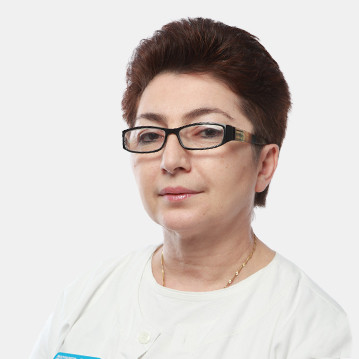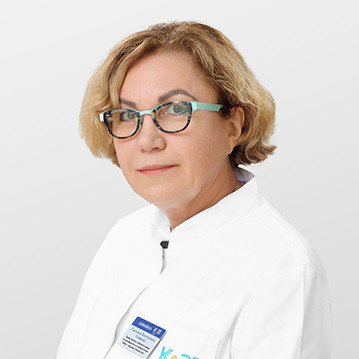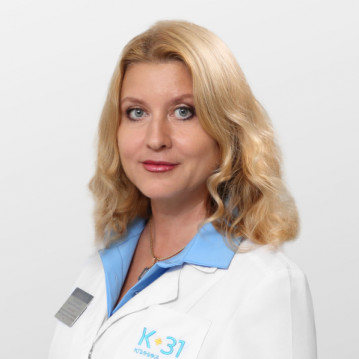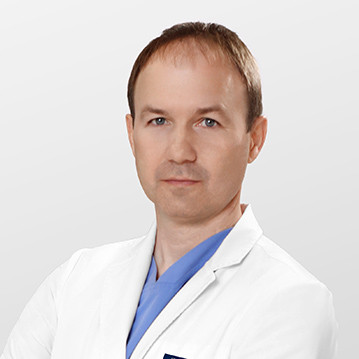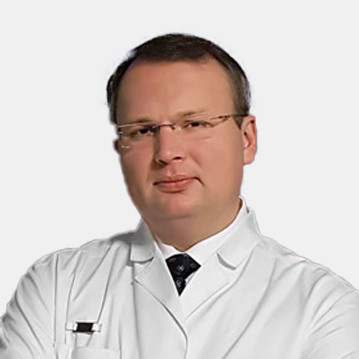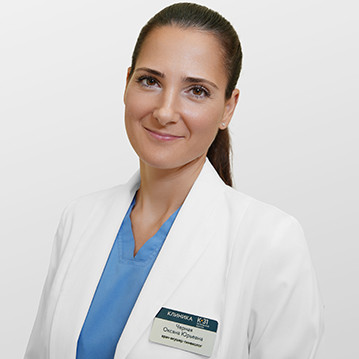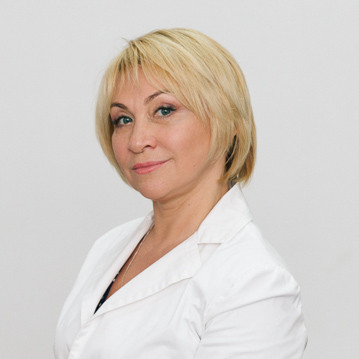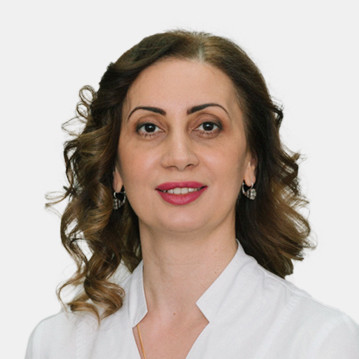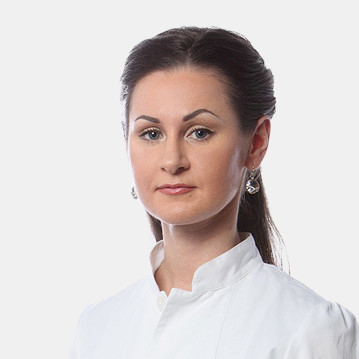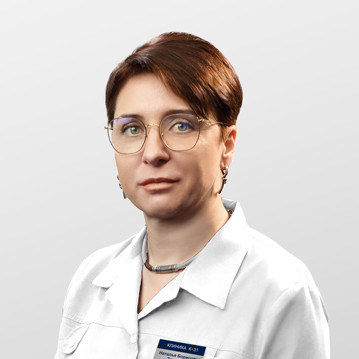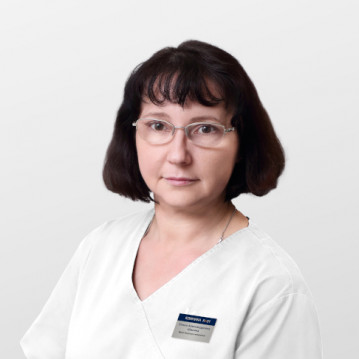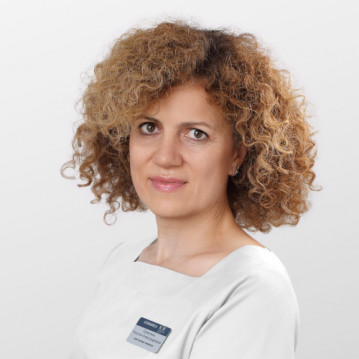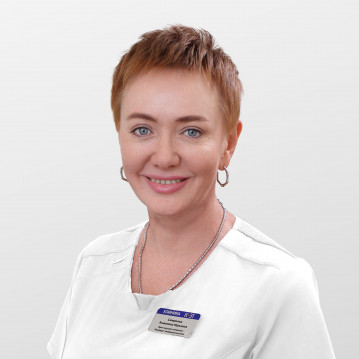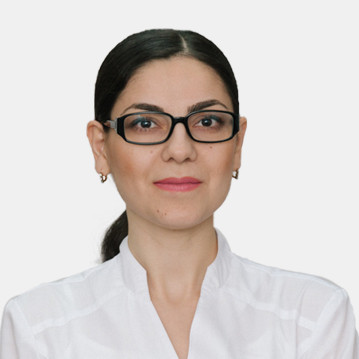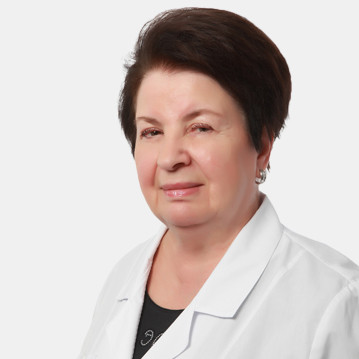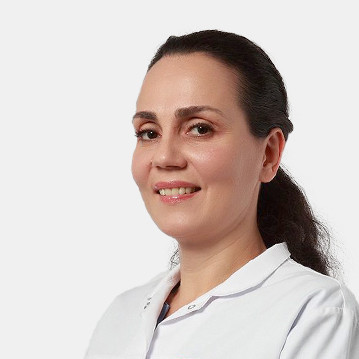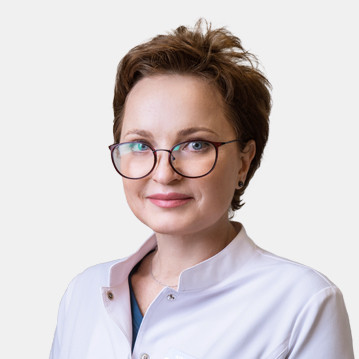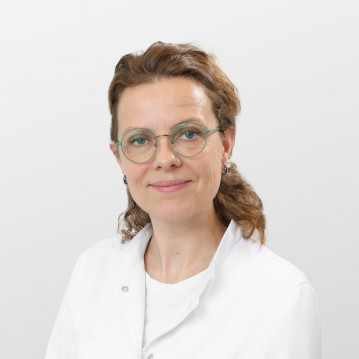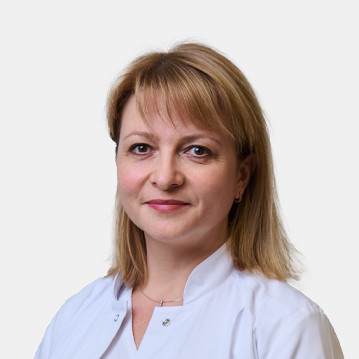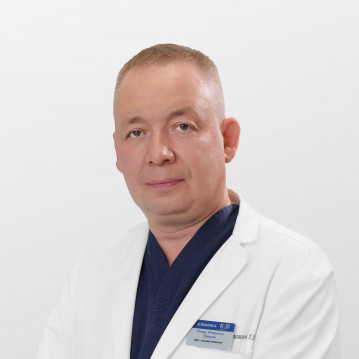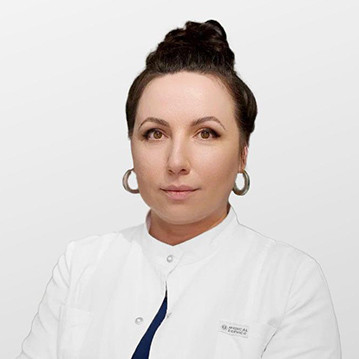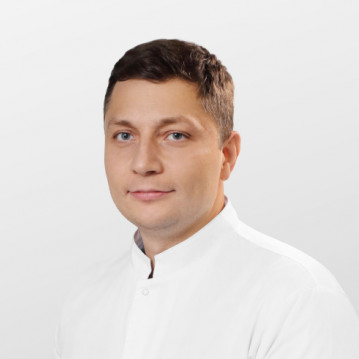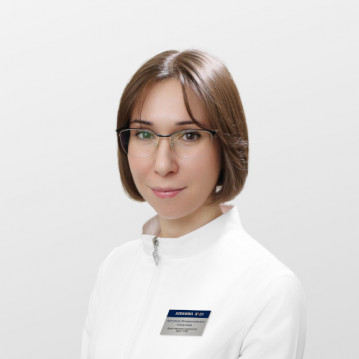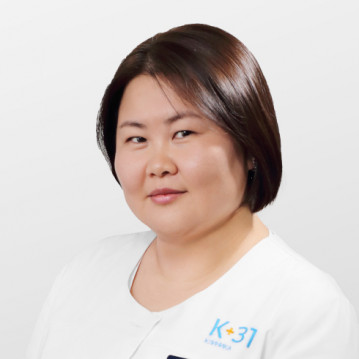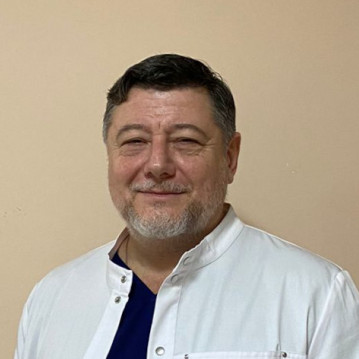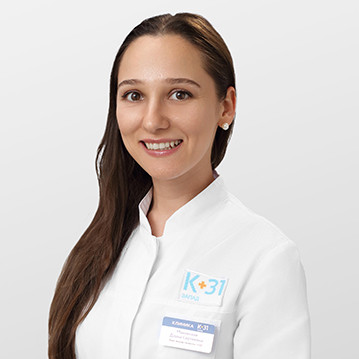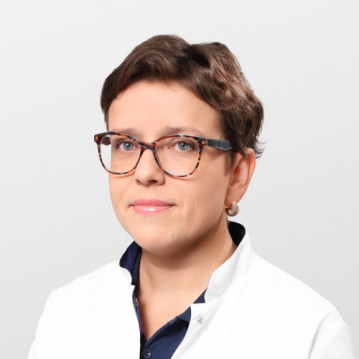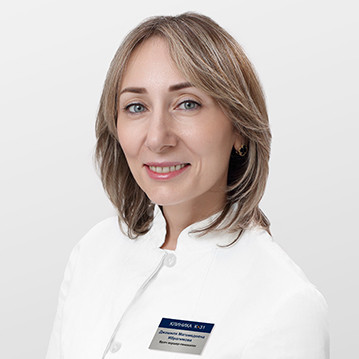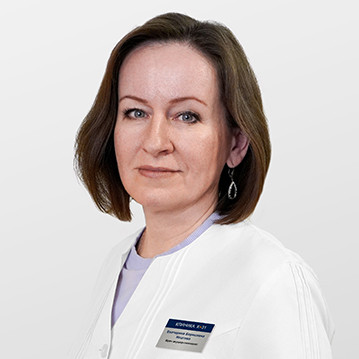Polycystic ovary syndrome

specialists

equipment

treatment

An important step in the treatment of PCOS is the normalization of the menstrual cycle. For this purpose, combined oral contraceptives (COCs) are used, which include antiandrogens that block the effects of male sex hormones. Taking COCs prevents further progression of the disease. After the withdrawal of hormones, the patient ovulates and there is a chance to become pregnant.
If, despite hormonal therapy carried out for 3-6 months, ovulation is still absent, surgery is performed. When choosing an access, preference is given to laparoscopy. During the operation either small incisions (wedge resection) or holes (cauterization) are made in the dense membrane of the ovaries, through which the egg can leave the ovary and be fertilized. After the intervention, the menstrual cycle becomes ovulatory. This effect lasts up to a year, during which a woman can become pregnant.
Treatment of PCOS takes a long time - from 3 to 12 months. But if it is chosen correctly, the effect is good, and pregnancy occurs in most patients.
PCOS is a dishormonal disease that causes a hard shell around the ovaries to form, preventing the release of an egg (ovulation). For the first time, the clinical picture of this pathology was described by Stein and Leventhal in the last century. For this reason, PCOS is also called Stein-Leventhal syndrome.
The mechanisms by which PCOS develops are not fully understood. At present, the role of hereditary factors in its occurrence has been proven. With PCOS, the conversion of male sex hormones into female sex hormones is disrupted in the ovaries. As a result, an excess of androgens appears in the blood, the maturation of follicles in the ovaries stops, many cysts form, and their albuginea thickens.
These disorders are based on the increased activity of insulin during puberty, the effect of which on the ovaries is mediated through the main regulatory center - the pituitary gland and its hormones: follicle-stimulating (FSH) and luteinizing (LH).
Violation of the production of sex hormones in the ovaries leads to a decrease in estrogen levels. As a result, menstruation becomes rare until their complete disappearance. In some cases, on the contrary, uterine bleeding is noted due to the formed hyperplastic process of the endometrium.
An excess of androgens in the body leads to the development of hirsutism (excessive growth of hair on the body and face). At the same time, there may even be baldness or hair loss with bald patches on the sides of the forehead and on the top of the head. Many women develop acne, seborrhea, the skin becomes oily. One of the main reasons for patients with PCOS to see a doctor is infertility due to the lack of ovulation.
A characteristic symptom of polycystic ovaries is male-type obesity, in which the bulk of adipose tissue is deposited in the lower abdomen and in the abdominal cavity. As a result of a rapid increase in body weight against the background of hormonal imbalance, stretch marks appear on the skin of the abdomen, hips, buttocks - striae.
Patients with PCOS often experience:
- Depression
- Decreased libido
- Irritability
- Nervousness
- Aggressiveness
- Often drowsiness
- Drowsy
- Complaints about brain fog
With this pathology, there is a violation of the function of not only the ovaries, but also other organs: the hypothalamus, pituitary gland, adrenal glands, thyroid gland. Therefore, the clinical picture and the severity of manifestations are very diverse.
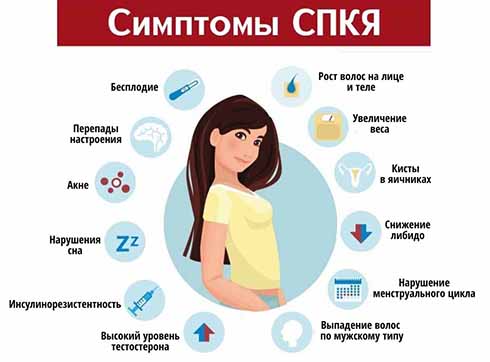

Appointment to the doctor
Any woman can suspect that she has polycystic ovaries. As we said, with PCOS, a dense capsule forms around the ovary, which prevents ovulation. Its absence can be registered using the basal temperature (BT) chart, which the patient with infertility is recommended to measure within 3-6 months. With PCOS, the BBT schedule will be monotonous without a characteristic ovulatory peak in the middle of the cycle throughout the entire observation period.
You can also detect anovulation with the help of home tests that are carried out, starting from the 17th day before the start of the expected menstruation. With PCOS, all tests will be negative. The absence of ovulation according to BT and tests for several months requires further examination, first of all, ultrasound.
What will the ultrasound show?
Ultrasound can reveal the following signs of PCOS:
Ultrasound is highly informative in relation to PCOS. However, the data of this method alone is not enough to establish a diagnosis. A laboratory study of the patient's blood is necessary.
An important step in the examination of patients with suspected PCOS is study of the hormonal profile, which is carried out on the 2nd-4th day of the menstrual cycle. With this pathology, an increase in the level of LH, testosterone, dehydroepiandrosterone (DHEA), estradiol deficiency.
Also, in patients with PCOS, thyroid function is often reduced. Therefore, in addition, it is necessary to evaluate the concentration of thyroid-stimulating hormone (TSH), thyroxine (T4) and prolactin, which can be changed.
An anti-Mullerian hormone (AMH) test plays an important role in the detection of PCOS. Normally, its level is 1-2.5 ng / ml. With polycystic it increases.
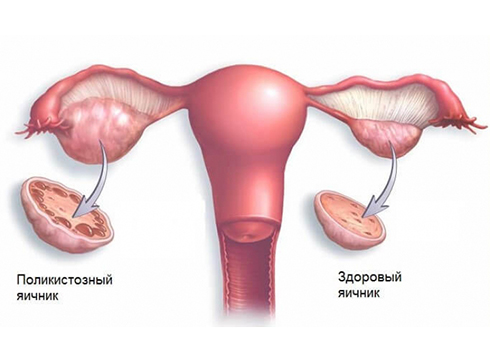
Often, PCOS has to be distinguished from adrenogenital syndrome (AGS) - a hereditary pathology of the adrenal glands, in which the content of male sex hormones also increases. But with PCOS, unlike AGS, they are synthesized in the ovaries, and not in the adrenal glands.
To establish the diagnosis, tests are carried out with glucocorticoids (prednisolone, dexamethasone, cortisone), the deficiency of which is present in adrenogenital syndrome and absent in PCOS. In the pathology of the adrenal glands, after the introduction of the missing glucocorticoid, the levels of androgens, their intermediate products and metabolites (DHEA, 17-OK, 17-OP) are normalized. With PCOS, this effect is absent.
Currently, to establish the diagnosis of AGS, genotyping of the 21-hydroxylase (CYP21A2) gene mutation is performed, which makes it possible to identify the deficiency of this enzyme, which is the cause of congenital adrenal pathology.
A distinctive feature of PCOS is insulin resistance - a violation of insulin susceptibility by tissues. A similar condition occurs in type 2 diabetes.
For this reason, patients with PCOS test to assess glucose tolerance.
With PCOS, there is often a change in the blood lipid spectrum with a predominance of atherogenic components: cholesterol, triglycerides, low and very low density lipoproteins (LDL and VLDL).
Women with PCOS and overweight are advised to change their lifestyle and diet. It is necessary to follow a diet (eating enough pure protein, vegetables, limiting carbohydrates), doing fitness and sports.
Given the decrease in tissue sensitivity to insulin, as in type 2 diabetes, gynecologists-endocrinologists of the gynecology department of the K + 31 Clinic in PCOS prescribe metformin (MF), which increases the susceptibility of cells to insulin. Against the background of taking the drug, carbohydrate metabolism is normalized, the number of male sex hormones in the blood decreases, and ovarian function is restored.
If at the end of the course of combined oral contraceptives (COCs) the ovarian function has not returned to normal, and the woman is interested in pregnancy, it is necessary to induce (stimulate) ovulation with special hormonal preparations (clostilbegyt). The scheme is selected by the doctor. Usually, treatment is started with a low dose and, in the absence of a result, it is increased.
Also, in order to correct hyperandrogenism, cyproterone acetate (Androkur) and spironolactone (veroshpiron), which have an antiandrogenic effect, are additionally used. Against the background of their intake, the greasiness of the skin decreases, acne disappears, and hair growth improves.
PCOS is not a tragedy, not a sentence, but just a barrier that temporarily prevents the achievement of an important goal in life. However, thanks to modern advances in medicine, you will be able to overcome this barrier. You just need to contact the leading experts, be patient, and the meeting with the baby will take place!
Price
Make an appointment at a convenient time on the nearest date
Our doctors

This award is given to clinics with the highest ratings according to user ratings, a large number of requests from this site, and in the absence of critical violations.

This award is given to clinics with the highest ratings according to user ratings. It means that the place is known, loved, and definitely worth visiting.

The ProDoctors portal collected 500 thousand reviews, compiled a rating of doctors based on them and awarded the best. We are proud that our doctors are among those awarded.
